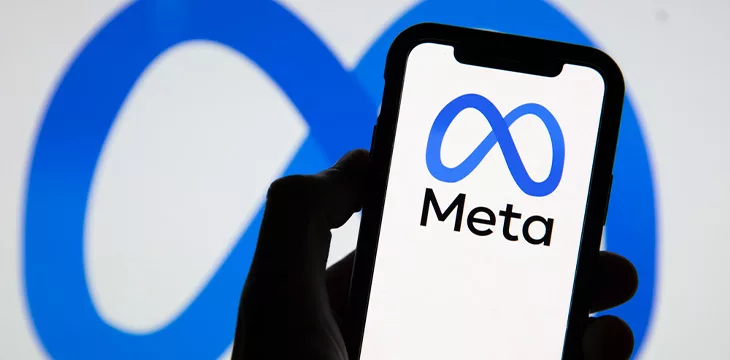|
Getting your Trinity Audio player ready...
|
The United States House Financial Services Committee has written to Meta (NASDAQ: META) to press for more information on any blockchain or digital asset plans the tech giant may have, specifically in connection with five digital asset and blockchain-related trademark applications still active from 2022.
Committee ranking member Maxine Waters (D-CA) stated, in a January 22 letter to Meta founder and CEO Mark Zuckerberg and operating chief Javier Olivan, that the trademark applications “appear to represent a continued intention to expand the company’s involvement in the digital assets ecosystem.”
She went on to say that “despite these trademark applications, which indicate there are specific goods and services connected with digital asset work that Meta is doing, Meta staff asserted on October 12, 2023, in communications with Democratic Financial Services Committee (Committee) staff that there is no ongoing digital assets work at Meta.”
The aim of Waters’ letter was, therefore, to clear up these seemingly mixed messages.
To date, Meta’s most high-profile dabble in the blockchain and digital asset space involved its payment stablecoin Diem (formerly Libra), which it famously abandoned in mid-2019 due to pressure from lawmakers, something Waters noted in her letter. Eventually, in January 2022, Diem was sold for $200 million to the now-defunct Silvergate Bank. Meta’s mid-2019 plan to release a digital wallet, Novi (formerly Calibra), also came to naught.
Despite these setbacks, Meta filed the five trademark applications in question on March 18, 2022, including a patent for the design and development of computer hardware and software services related to blockchain and digital assets and another pertaining to downloadable software for managing and validating digital assets.
In her letter to the company, Rep. Waters highlighted that Meta had received a Notice of Allowance (NOA)—an official document from the Patent Office stating the application can be patented—for each patent. These NOAs last six months, after which the company must file either a statement that it will use the trademark or request a six-month extension.
Meta has until February 15 to respond to the earliest NOA (sent on August 15, 2023) and until July 16 to respond to the most recent NOA (sent on January 16, 2024).
Waters stated that the outstanding trademark applications “seem to indicate that Meta has not ceased its activity in digital assets since the shutdown of Diem.” Thus, she requested the company clarify its position.
Specifically, Waters wanted to know:
- Does Meta intend to pursue any projects related to Web3, digital assets, or digital wallets?
- Does Meta intend to file a Statement of Use or an Extension Request on the trademark applications?
- To what extent is Meta conducting R&D into pilot programs, future stablecoin projects, or partnerships with other stablecoin issuers?
- Is Meta actively exploring the potential adoption of distributed ledger technology (DLT) applications in its platform?
- Is Meta planning to launch a payments platform that supports cryptocurrency?
- And how is Meta’s technology enabling the creation, mining, storage, transmission, or settlement of digital assets in its related platforms, including its metaverse?
Meta’s patent applications aren’t the only indication that the company has a continuing stake in the digital asset space. Waters didn’t mention it in her letter, but Meta is also a ‘Platinum’ member of the rogues’ gallery that makes up the Crypto Open Patent Alliance (COPA)—a ‘non-profit community’ whose stated goal is to remove patents and litigation as a barrier to growth in the open source digital asset space.
COPA faces a dramatic February as its much-anticipated case against computer scientist Dr. Craig Wright will finally play out in a U.K. court. Wright claims to be the pseudonymous creator of Bitcoin, Satoshi Nakamoto, while COPA claims otherwise and hopes to have this proven in court.
Depending on the outcome, the case could have a substantial impact on the digital asset space, not least because Wright is involved in several other cases (which have been stayed pending the outcome of the Satoshi identity trail) in which he is seeking, amongst other things, copyrights and database rights about Bitcoin.
Dr. Wright has filed suit against several entities, including Coinbase (NASDAQ: COIN) and BTC Core Developers, for ‘passing off’ BTC as Bitcoin—a civil claim that protects people from attempts to ‘hi-jack’ or co-opt the reputation of their products in order to sell competing ones—due to BTC having long since veered off the path laid out by Satoshi Nakamoto in the Bitcoin white paper. Unlike the BSV blockchain which follows the design outlined in the original Bitcoin white paper.
Watch: BSV entrepreneurs prove Bitcoin works with their applications

 07-08-2025
07-08-2025 





